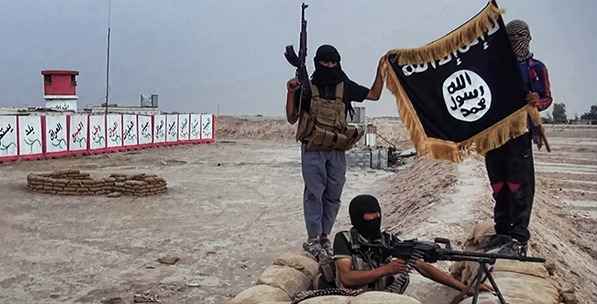Just as we thought that political tensions would ease, dust will settle and the global perception concerning politico-economic stability will be restored following the local and presidential elections, a new wave of stigmatizing Turkey started with full force. It is not resorting to conspiracy theories or falling victim to crisis mongering, but one needs to be foolish to miss the fact that there is a broad-based international coalition and its domestic interlocutors striving to dent the global image of the country.
The incumbent Justice and Development Party (AK Party) government came out of the fiercely contested local elections with a landslide victory and then Prime Minister Recep Tayyip Erdoğan was comfortably elected in the first round as the first popularly elected president on Aug. 10. Currently, there are no visible developments signaling a political or an economic crisis, but a combination of accusations targeting the government and Erdoğan carry forward a concerted effort to undermine the credibility of Turkey as a reliable geopolitical partner and a preferred destination for economic investments. It is true that Turkey is a developing country with crucial needs for socioeconomic reform and democratic consolidation, but the ongoing perceptive attack makes the realization of structural reforms even more difficult.
On the political front, the recent campaign initiated by The New York Times and The Washington Post and carried forward by a wide diplomatic-media alliance was constructed on the false premise that Turkey has been supporting the Islamic State of Iraq and al-Sham (ISIS). Despite powerful objections by Erdoğan, Prime Minister Ahmet Davutoğlu and various actors, this accusation was raised over and over again to trigger a perception that associates Turkey with international terrorism. Numerous Western countries and their allies in the Gulf made efforts to support the Free Syrain Army against Bashar Assad in the Syrian civil war and Turkey acted with this international coalition until it was left pretty much alone. The fact that ISIS became an international actor during the Syrian civil war under the watchful eyes of global powers and passed into Iraq as a territorial force despite the formidable military presence of the U.S. should give the global public different messages. Moreover, interpreting Turkey's reluctance to join the anti-ISIS coalition due to its considerations about the 49 Turkish hostages held by ISIS and potential acts of retaliation as a sign of supporting terrorism is ludicrous. It is true that Turkey could do more to prevent human trafficking that provides fighters to ISIS but this requires more effective intelligence sharing by European countries that are trying to shift the political burden of the rise of ISIS completely to Turkey.
On the economic front, international financial circles led by credit rating agencies seem to constitute the second and more technical aspect of the stigmatization initiative. Despite their failure leading to the global economic crisis, the rating decisions and reports from Standard and Poor's, Fitch and Moody's still exert direct influence on investor decisions by projecting a positive or negative outlook. They also have an indirect and moral impact especially for developing countries indicating the ability of political authorities to accommodate internationally agreed economic norms and pursue global integration. Therefore, the unjustified attitude of these institutions toward Turkey which overemphasizes relative problem areas and disregards improvements in the economy is highly disturbing.
Therefore, Erdoğan was right when he protested Western media reports associating Turkey with ISIS and the politically motivated decisions of credit rating agencies that contradicted their approach toward similar economies. The main task of the Davutoğlu government in the coming days will be to maintain prudence in both of the issues and double their efforts to manage international perceptions about Turkey with intensive communication.
<







